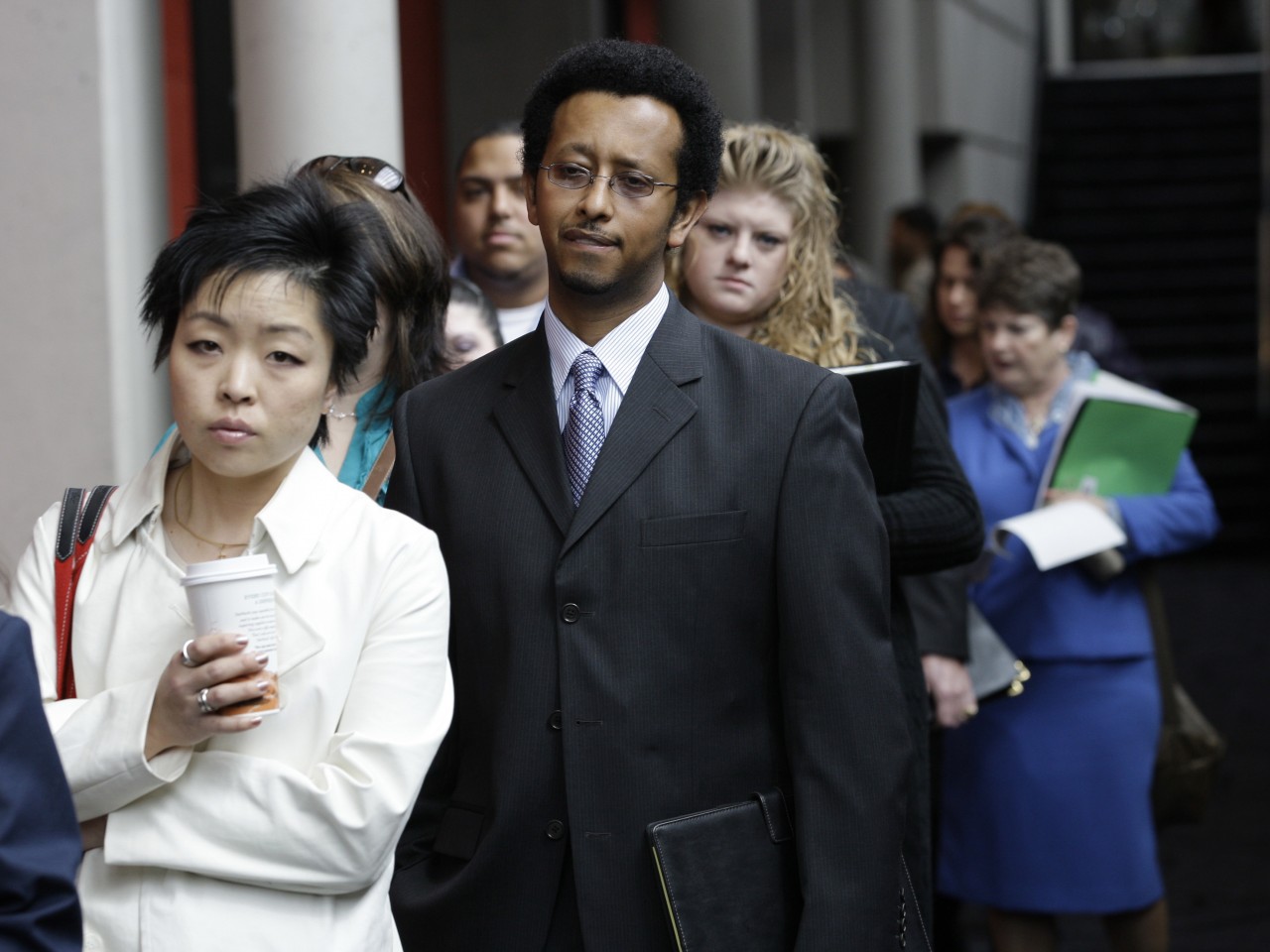How The Stock Market Can Have An Impact On Job Seekers

Everyone has seen the dominoes fall: The stock market tanks, corporations have less money to work with, the economy slows down, and then businesses large and small stop hiring. But what goes on over on Wall Street can affect not only the total supply of jobs, but which kinds of jobs are more plentiful and the hours and working conditions that job seekers may expect when they are hired.
Barring a complete financial disaster, some sectors of the stock market generally do better than others. Even when the market is slow in many other areas, it may be that technological innovation drives up the stock prices of certain companies. There are some products consumers or business customers are simply going to be interested in, no matter what else is going on. So job hunters in these sectors won’t be as dramatically affected.
In a slow or slowly recovering economy, job seekers may still be presented with job openings. But it may actually be easier for you to find two part-time jobs than it is for you to find a single one with regular, full-time hours. You may also discover that positions at temporary help agencies are booming.

Sometimes, while the stock market is down and the economy is slow, companies lay workers off and proceed to discover productivity hacks. They replace some of their people with automation and then learn to work without others by streamlining their processes. When the economy comes roaring back and business returns to normal levels, there’s a need to hire more workers, but not the same number that were needed before. In this way, one stock market hiccup can have results that linger indefinitely.
Stock market downtime can also have an effect on the labor market that almost nobody would expect. It can affect who job seekers are competing against for the limited number of jobs available by affecting people’s retirement decisions.
Many workers’ pensions are tied to the stock market. So, if certain people were planning on hanging up their work clothes and calling it a day, but then suddenly their 401Ks shrank by half, guess who’s sitting next to you in the waiting room.
A study by the National Bureau of Economic Research found that more educated workers experienced this problem and stayed in the workforce longer than they planned to. Interestingly, a bad economy had the reverse effect on less educated workers, who found it necessary to retire sooner to collect Social Security when they were unable to find a job.
Sometimes the stock market may recover, but the economy may follow it very slowly. CEOs may wonder how robust the stumbling recovery actually is. This may cause the chief executives to don their stock market prognosticators’ caps, analyzing long streams of stock data generated over a year’s time.
If they don’t like the pattern they see, they may not believe in the recovery and they may put off posting those want ads you were hoping to see.
But when the stock market improves and the economy improves along with it, the recovery can make it a job seeker’s market. In this kind of situation, it’s easier to find a job — period. It’s also easier to find exactly the type of job you’re looking for at your correct employment level.
Employers will compete for your attention in a tight labor market by offering better pay and benefits. You’re also empowered to negotiate a better salary or even such perks as being able to work from home one day a week. And you’re more likely to be hired on the spot at your interview, instead of receiving the old don’t-call-us-we’ll-call-you deal.
When US markets are up, but international ones are troubled, this can still affect your job search if your line of work involves exports. By the same token, your industry might be recession proof if overseas demand persists despite a domestic stock market bust.
As a job seeker, all of this market-related intrigue can affect your prospects, and there is nothing you can directly do about it. But keep in mind that in a down economy when the competition is tough, you can go the extra mile: Polish your résumé and make that extra phone call. Then when the labor market is working to your advantage, remember your clout.
